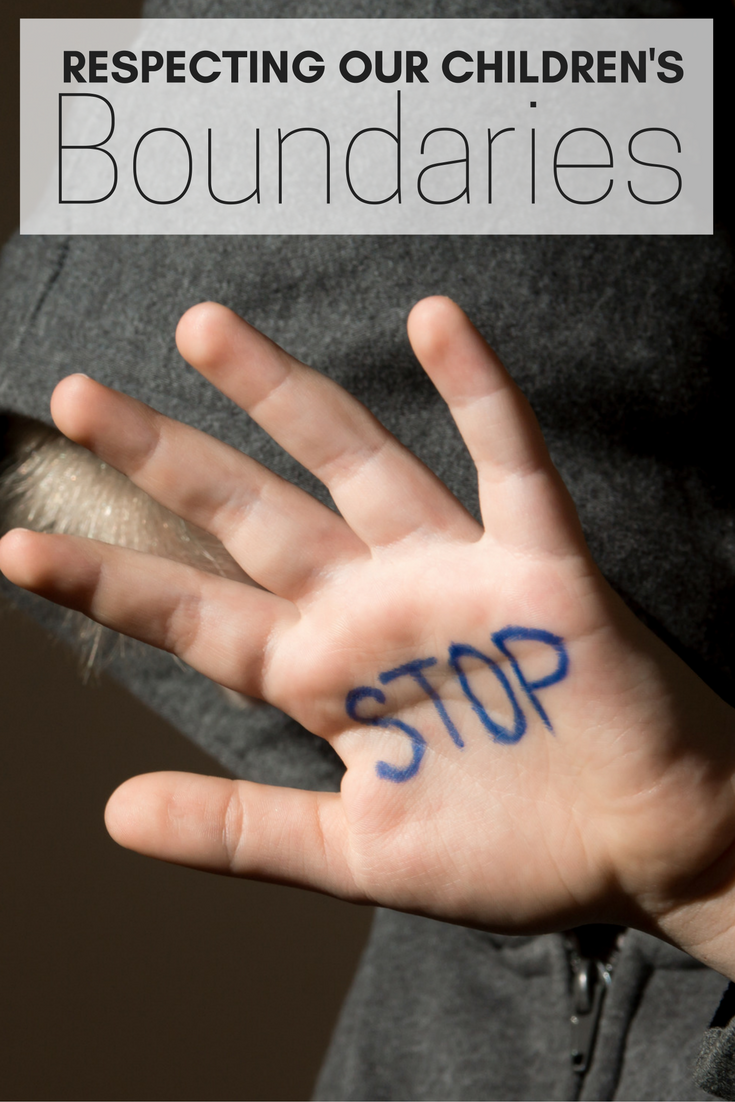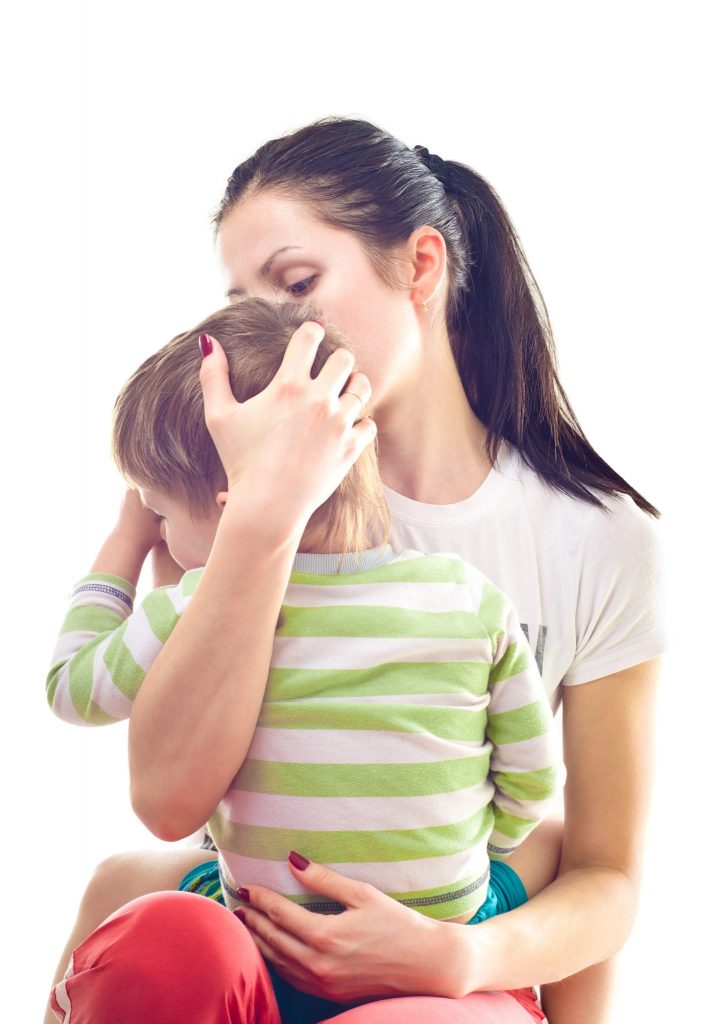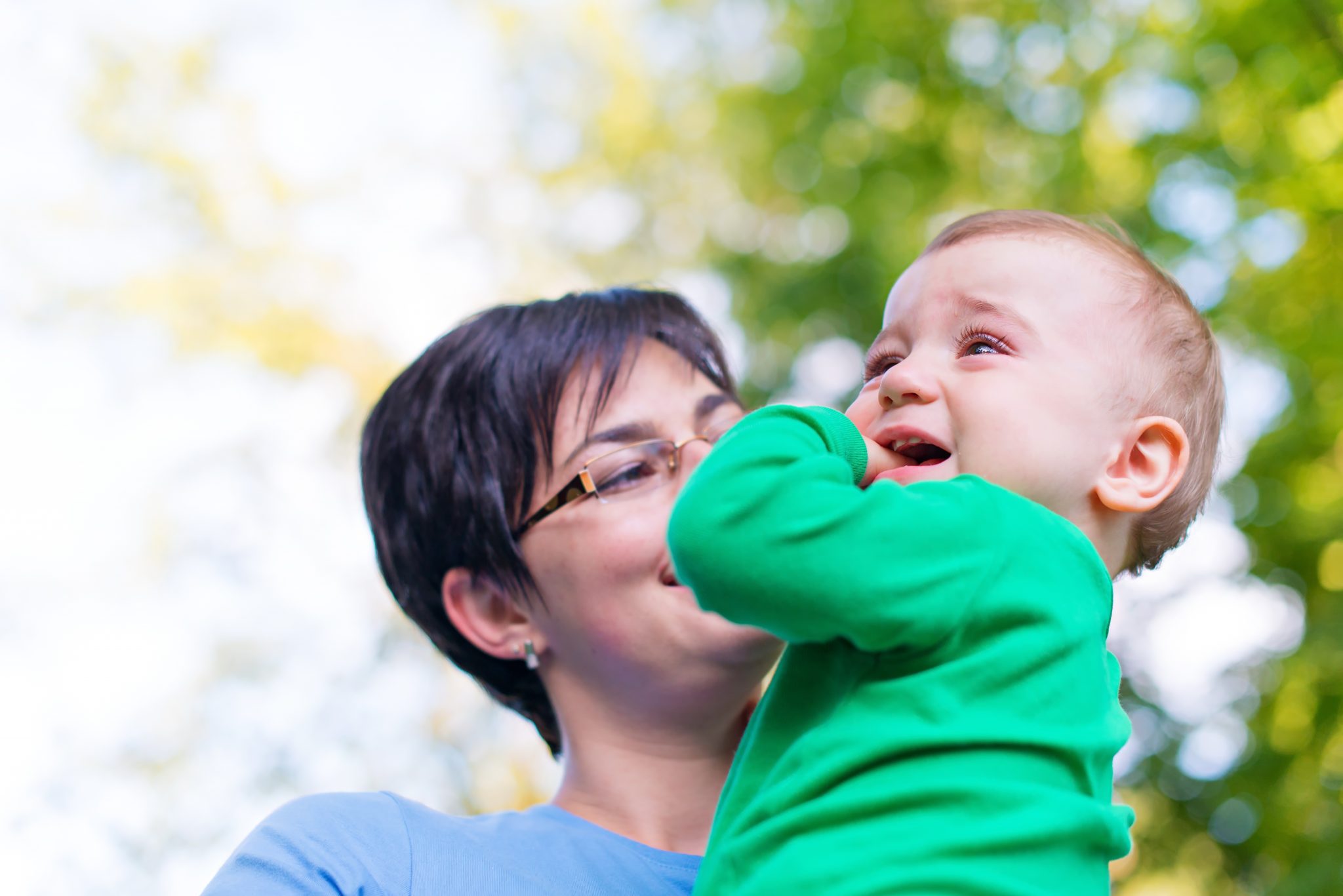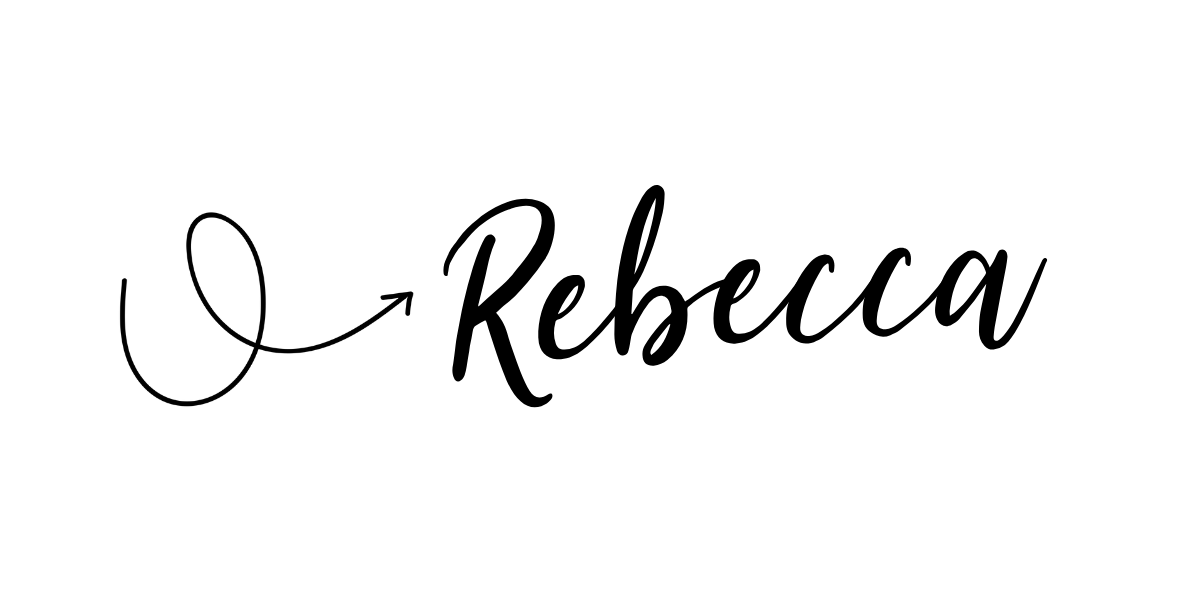Imagine with me, you’re at Thanksgiving dinner, surrounded by family. Kindly old Aunt Agnes comes over and starts gushing over your children. They are young, 3 and 4 years old, and instantly retreat behind your legs. You can tell they are nervous. Your aunt approaches this obvious resistance as a game, trying to reach them from around your legs. You justify your children’s “rude” behaviour with pacifying comments such as “they’re just shy, they haven’t had a nap today, they don’t remember you very well.” Aunt Agnes chuckles, brushes you off and reaches in for a hug. They squirm and wiggle and fuss and cry and you are embarrassed and yet feeling the need to rescue them. Can you relate to this scenario?
I have been around countless family get together’s where my kids were feeling uncertain and uncomfortable with the number of people they didn’t know. From when they were very young, I felt strongly that my children needed to learn that they had the right to say “no”, even to an adult, when it came to their own body. Some of our family/close friends have respected that, others have not. Some people refuse to acknowledge any boundaries I have tried to impose and force their affection on my children, despite the fear on my little ones face as they desperately search for mommy.

PIN ME!
Setting physical boundaries for my children.
Young children are the ones that are often the most afraid of someone new. They are unfortunately also not able to process how they are feeling, what they are feeling, or how to handle it. For younger children, you are going to need to watch your littles and set boundaries FOR them. Taking into consideration that this well meaning family member truly loves your child and is probably feeling a bit hurt that they won’t let them hug them, there are ways you can do it gently without drawing too much attention to it.
For all 5 of my children, I have paid close attention to their reactions when approaching a new person (or someone they wouldn’t remember well). I watch for their “tells”. My little ones would cry and start clinging to me, my preschoolers would put their hand in their mouths or twirl their hair. I became a master of my children’s body language and learned how to graciously intervene. I grabbed my babies, I redirected my preschooler, I would get down on my knees and keep my hands on my kids so they know I am there with them, I got creative.
My babes and preschoolers became more confident when they learned that mom would come to the rescue. When they were old enough to understand I would take them aside before someone like “Aunt Agnes” was coming over and explain to them that they can say “no thank you” to a hug. I taught them that if they were uncomfortable or uncertain to come to me, place their hand on my leg (as I would most likely be visiting) and whisper in my ear that they needed to talk to me. My kids learned that I am available to them, that I trust and stand by THEM no matter WHO it is or how well I know that person. I’ve got their backs.
Setting physical boundaries with difficult toddlers/preschoolers.
Now to those of you with preschoolers, you are most likely aware of a whole other level of “stranger danger.” The “DON’T TOUCH ME!” era of childhood. My worst culprit was my 4th child. From infancy she wouldn’t go to anyone else. ANYONE. She would scream, reach for me, she didn’t feel safe or comfortable with any single person other than her mama. She was a mama’s girl and everyone told me “she’ll grow out of it.” She is now coming out of that stage, at 3 1/2, but it has been a LONG 3 years. When she hit toddlerhood, the name of the game changed and it could come across as blatantly rude. She wouldn’t even look at people. We would go to church and the poor child would cover her eyes as tight as she could so she couldn’t even see anyone else. She clung to my leg and refused to acknowledge or even look at one other person there. It was EMBARRASSING! Well-meaning family and friends would sometimes advise me to force her, to push her to at least be civil. But when I looked in my baby girls eyes, I saw side-eyed fear and insecurity.

I stuck to my guns and changed my strategy. I stopped apologizing for her and instead just accepted it. I just held her close and before we left for ANYWHERE (I’m talking the grocery store here people) we would talk about how she could at least smile at people without ever leaving my side. We talked, and nothing would change. We’d talk again, she’d PROMISE (she’s a very emphatic little girl) and she’d still pout her lip and hide her face when someone said hi to her. But over time, when she realized that I didn’t expect her to go to them, to leave me, she DID start to open up (from a distance). She smiled, she waved, GASP! She giggled! It was revolutionary. Cutting her nap helped as well, no more grumpy “no nap” situations to deal with. It was slow and painful, and then one day it was done. Those days were behind us and she was a completely different girl.
Setting Physical Boundaries: Building confidence and giving our children a voice.
In the end, I think teaching our children that they can say “no” and how to do that builds confidence in who they are and in their relationship with you. More importantly, however, it lays the foundation for a child who says “no” to sexual abuse. Who isn’t afraid to stand up for themselves just because said person may be an adult. It teaches them to pay attention to that feeling that something isn’t right, that they don’t feel safe, to tune into it. In setting physical boundaries for them they learn that we are in their corner, no matter what.
Make sure to come follow my Facebook page!


